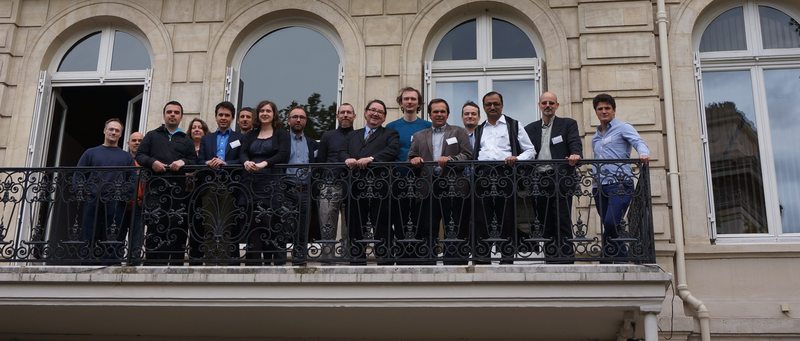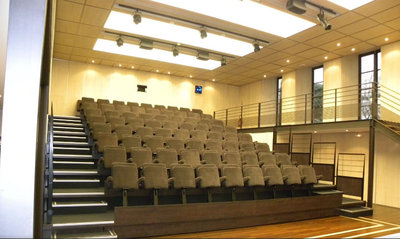PIPER
For all any info and downloads regarding the Piper Software or Child model, please go to http://piper-project.org
This site is the site of the PIPER European project (which is now completed). It will remain for historical purpose but will not be updated anymore.
Position and Personalize Advanced Human Body Models for Injury Prediction
Public web release
After more than three years of development, the team of the PIPER European project is happy to announce the public release (version 1.0.0) of the PIPER software framework and the PIPER scalable child model. They are both released under Open Source licenses (see license files for details) and can be freely used by all, whether academic or commercial users.
The PIPER software can be used to help scale and position Human Body Models for impact. It has been tested with several models during the development phase (including some from the GHBMC and THUMS families, and of course the PIPER child model). The PIPER child model is an occupant model. It is scalable through a dedicated module within the PIPER application and its response was thoroughly checked against many experimental datasets from the literature.
They are available on http://piper-project.org/downloads and provided with documentation and a few tutorials. Videos of the final project workshop are also available on PIPER youtube channel. A scientific publication process is still ongoing (be kind and do not rush to publish before the authors).
Access links and more info on this website or on the PIPER Open source project website www.piper-project.org. Future updates will be announced on www.piper-project.org.
Final dissemination workshop presentations available
Open Source deliverables started being published at the final dissemination workshop on April 25, 2017 in Paris.
There were many participants from leading industrial and academic institutions at the workshop (Thanks for coming). As requested by some who could not attend, videos (including talks, demos) of the workshop are coming soon. In the meantime, you can already download the slides shown at the event here.
Updates on the Open Source project following the European FP7-funded project PIPER will be available on piper-project.org
The program overview of the final PIPER workshop is now available here.
PIPER : Public release and final workshop April 25 in Paris
The beta testing phase is now over (thanks to all the testers) and the PIPER consortium is actively preparing the public release of the PIPER software tools and PIPER child models.
A final project event will be held in Paris on April 25 at the CCFA (on the top of the Champs Elysées, near Arc de Triomphe) from 9:00 am to 5:00 pm.
During the full day event, an overview of the project results, software and model capability will be provided, along with interactive demos.
Announcements will also be made regarding the Open Source activities beyond PIPER and an open discussion will held on that topic.
The presentations, speakers and demonstrations will be filmed in view of their online publication after the workshop. The audience will not be filmed and there will be no live streaming of the event.
Licensing plan
The PIPER consortium has now selected licenses for the deliverables of the PIPER project.
All deliverables will be released under Open Source licenses at the end of the project (April 30, 2017). The licenses selected ensure that the software and models will remain Open and freely accessible for all (including both academic and commercial users). They will allow contributions by anyone such that the software and models can keep evolving. The licenses are also compatible with a commercial service business model.
More specifically:
- All software (PIPER framework and module) will be released under the Open Source license GPLv2 or later (https://www.gnu.org/licenses/old-licenses/gpl-2.0.en.html).
- PIPER Child models will be released under the Open Source license GPLv3 (full text here: https://www.gnu.org/licenses/gpl-3.0.en.html) with additional clauses to promote Open Science.
- Data (e.g. segmentations) will be released Creative Commons CC-BY Version 4 (https://creativecommons.org/licenses/by/4.0/)
- Some specific libraries (e.g. AnatomyDB) will be released under the more liberal LGPLv2 to facilitate use in other software (Full text of license: https://www.gnu.org/licenses/old-licenses/lgpl-2.1.en.html)
- Documentation will be released under the Free Documentation License Version 1.3 (GNU FDL V1.3, https://www.gnu.org/licenses/fdl-1.3.en.html)
Discussions are ongoing with commercial models owners regarding the distribution of the metadata required to import their models in the software framework.

 CCFA Paris
CCFA Paris
